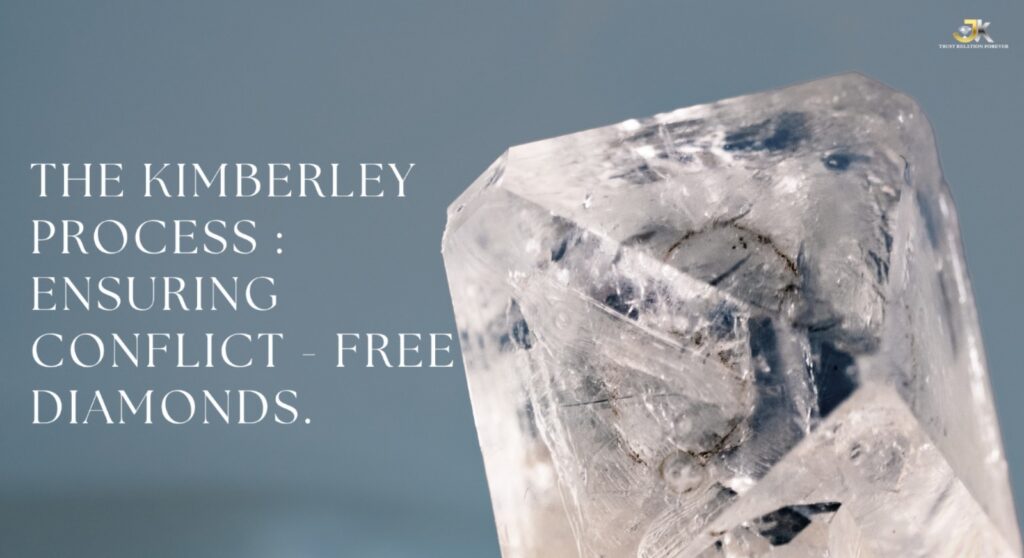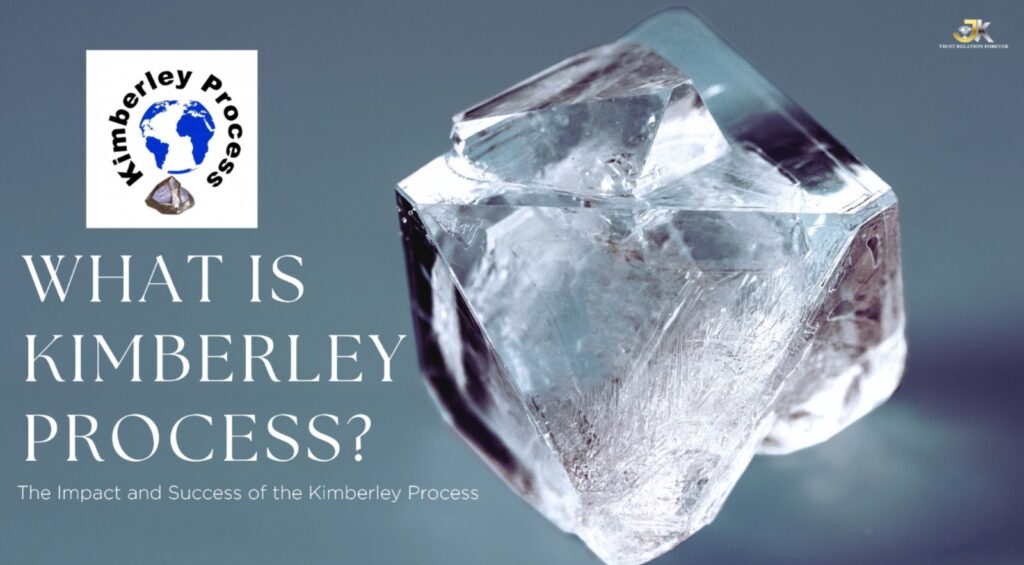When you choose a natural diamond, you’re not just selecting a beautiful gem; you’re often making a conscious decision about its origin. For decades, the diamond industry has grappled with the issue of “conflict diamonds” – rough diamonds used by rebel movements to finance wars against legitimate governments. To combat this, a groundbreaking international initiative was born: The Kimberley Process Certification Scheme (KPCS).
What is the Kimberley Process?
The Kimberley Process (KP) is a commitment by governments, the diamond industry, and civil society organizations to prevent the flow of conflict diamonds into the legitimate global supply chain. Launched in 2003, it’s a unique tripartite system that aims to safeguard the integrity of the diamond trade.
Key Features of the KPCS:
- Definition of “Conflict Diamond”: The KP specifically defines conflict diamonds as “rough diamonds used by rebel movements or their allies to finance armed conflicts aimed at undermining legitimate governments.” This narrow definition is important to understand its scope.
- Certification Scheme: Participating countries must implement stringent national legislation and controls to regulate the import and export of rough diamonds. Every shipment of rough diamonds traded between KP participants must be accompanied by a Kimberley Process Certificate. This certificate guarantees that the diamonds are “conflict-free” according to the KP’s definition.
- Chain of Custody: Rough diamonds are transported in tamper-resistant containers, and the certificates accompany them at every stage of the journey from the mine to the cutting and polishing centers.
- Transparency and Data Exchange: Participant countries commit to transparent practices, including the exchange of statistical data on diamond production and trade.
- Selective Trading: Trade in rough diamonds is only permitted between KP-certified member countries. This helps to prevent illicit stones from entering the market.
- Regular Reviews: The KP operates through annual meetings and working groups that monitor implementation, address challenges, and propose reforms.
The Impact and Success of the Kimberley Process
The Kimberley Process has been remarkably successful in its core mission. Before the KP, an estimated 4% of the world’s diamonds were conflict diamonds. Today, that figure has been drastically reduced to less than 0.2%, according to the KP itself. This significant achievement has:
- Cut off Funding for Conflicts: The KP has largely prevented rebel groups from using diamond sales to finance violent conflicts, thereby saving countless lives and promoting peace in diamond-rich regions.
- Restored Consumer Confidence: By providing a verifiable system for conflict-free diamonds, the KP has helped to rebuild trust among consumers.
- Promoted Legitimate Trade: It has fostered responsible practices within the industry and supported the development of legitimate diamond economies in producing countries.

Beyond the KP: A Broader Ethical Landscape
While the Kimberley Process has been instrumental in addressing the issue of conflict diamonds, it’s important to recognize its specific focus. Its narrow definition of “conflict diamonds” means it doesn’t explicitly address other important ethical considerations, such as:
- Human rights abuses not directly related to armed conflict.
- Environmental impact of mining.
- Labor practices (e.g., fair wages, child labor in artisanal mining).
- Money laundering or tax evasion.
Recognizing these limitations, the diamond industry, along with civil society organizations, continues to evolve its approach to ethical sourcing. Initiatives like the Responsible Jewellery Council (RJC) go beyond the KP, setting comprehensive standards for human rights, labor practices, environmental performance, and product integrity throughout the entire jewelry supply chain.
Making a Responsible Choice
The Kimberley Process remains a vital first step in ensuring that the natural diamond you choose contributes to positive change, not conflict. When purchasing a diamond, you can ask your jeweler about their commitment to the Kimberley Process and inquire about any additional certifications or supply chain transparency measures they have in place.
By understanding the role of the Kimberley Process and the broader ethical commitments of the modern diamond industry, you can make a purchase that not only brings joy but also supports a more responsible and sustainable world.
Stay updated on the latest JK Sons postings by following us on Instagram.
https://www.instagram.com/j_ksons/
https://x.com/jksonsdiamond?t=a4_K1Uej1BwNCXt63jmEMw&s=08
https://www.youtube.com/@JKSons-q4x
https://www.facebook.com/share/19fYjZtEZf/
https://www.linkedin.com/in/jk-sons-a8005832b?utm_source=share&utm_campaign=share_via&utm_content=profile&utm_medium=android_app


